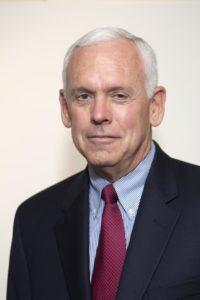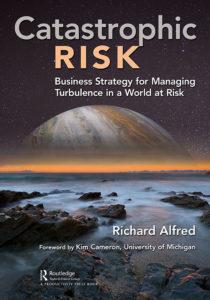Alumnus Looks Back on a Successful 50-Year Career in Academia

After a 50-year career in academia, Richard Alfred ’66 distinctly remembers when a peer challenged how he thought about sociological theory during an advanced seminar at Allegheny College.
“I began to look at things not with acceptance of what is, but with questions about why and what could be. I wanted to understand root causes, consequences, and most importantly, long-term scenarios,” says Alfred, who majored in sociology and minored in psychology at Allegheny. “My credo became look ‘beyond what you see.’”
That philosophy would provide the foundation for his career, leading to numerous awards and consultations with hundreds of organizations throughout North America. Many of the institutions where Alfred contributed to strategic plans still use his model to guide their strategy, resources, and operations.
Alfred went on to earn a master’s in higher education and sociology along with a doctorate in higher education administration, all from Penn State University. Subsequently, he accepted a position as director of educational research and development for the Metropolitan Community Colleges in Kansas City. While there, he developed a strategic plan for a three-campus system.
Later, he became vice president for finance, planning, and management at New York City Community College. This position was particularly intense, as New York was on the brink of default at the time. Alfred was primarily responsible for rebuilding enrollment, streamlining administration, restructuring academic programs, and migrating the institution’s funding from city to state.
Alfred moved from college administration to university teaching in 1980 when he joined the University of Michigan as a professor of higher education. He taught courses in organizational strategy, leadership, and effectiveness.
“I really enjoyed working with high-level graduate students at the University of Michigan,” says Alfred. “I worked with them as colleagues authoring books and articles. We learned from each other, which was a unique experience.”
Today, he is proud to see many graduate students become professors themselves or executives in educational institutions.
Additionally, he has shared what he has learned by writing books that have helped shape and guide leadership throughout higher education.
“Sociology and psychology have contributed to everything I’ve written because my main focus is on organizations and the people within them,” Alfred explains.

Today, Alfred is retired, but that doesn’t mean he has stopped contributing to academia. His most recent work was published in October 2021. “Catastrophic Risk: Business Strategy for Managing Turbulence in a World at Risk” examines man-made and natural calamities combined with human behavior that exacerbate risk. Global risks such as climate change, contagion, and social inequality are emphasized.
“Allegheny taught me how to ask questions that needed to be asked beyond the surface,” says Alfred. “Learning outside the lines encourages learners to ask the questions that people will not ask, to look beyond what you see.”